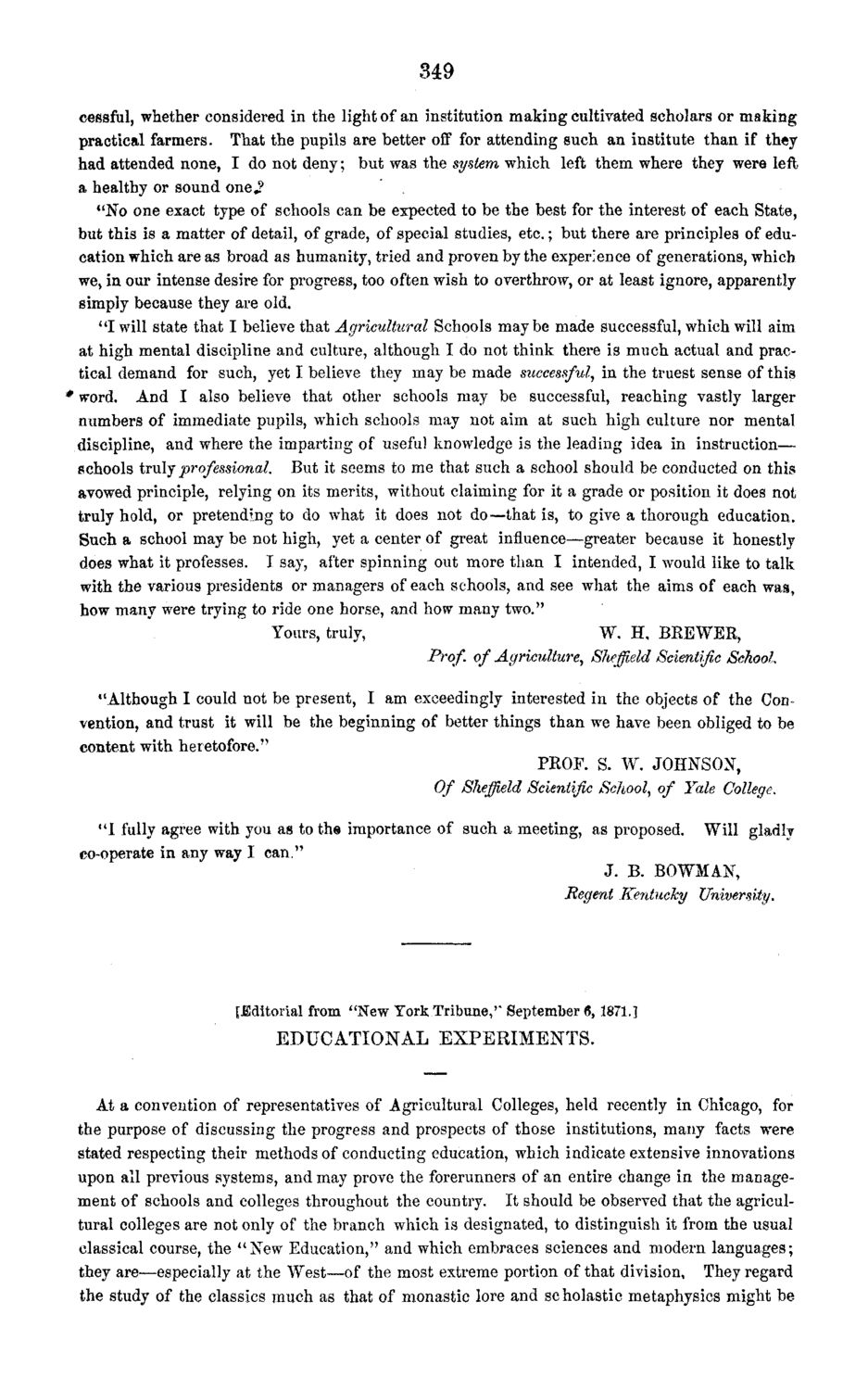| |
| |
Caption: Board of Trustees Minutes - 1871
This is a reduced-resolution page image for fast online browsing.

EXTRACTED TEXT FROM PAGE:
349 cessful, whether considered in the light of an institution making cultivated scholars or making practical farmers. That the pupils are better off for attending such an institute than if they had attended none, I do not deny; but was the system which left them where they were left a healthy or sound one,? "No one exact type of schools can be expected to be the best for the interest of each State, but this is a matter of detail, of grade, of special studies, etc.; but there are principles of education which are as broad as humanity, tried and proven by the experience of generations, which we, in our intense desire for progress, too often wish to overthrow, or at least ignore, apparently simply because they are old. "I will state that I believe that Agricultural Schools maybe made successful, which will aim at high mental discipline and culture, although I do not think there is much actual and practical demand for such, yet I believe they may be made successful, in the truest sense of this * word. And I also believe that other schools may be successful, reaching vastly larger numbers of immediate pupils, which schools may not aim at such high culture nor mental discipline, and where the imparting of usefu] knowledge is the leading idea in instructionschools truly professional. But it seems to me that such a school should be conducted on this avowed principle, relying on its merits, without claiming for it a grade or position it does not truly hold, or pretending to do what it does not do—that is, to give a thorough education. Such a school may be not high, yet a center of great influence—greater because it honestly does what it professes. I say, after spinning out more than I intended, I would like to talk with the various presidents or managers of each schools, and see what the aims of each was, how many were trying to ride one horse, and how many two." Yours, truly, W. H. BREWER, Prof, of Agriculture, Sheffield Scientific School "Although I could not be present, I am exceedingly interested in the objects of the Convention, and trust it will be the beginning of better things than we have been obliged to be content with heretofore." PROF. S. W. JOHNSON, Of Sheffield Scientific School, of Yale College, "1 fully agree with you as to the importance of such a meeting, as proposed. Will gladly co-operate in any way I can" J. B. BOWMAN, Regent Kentucky University. [Editorial from "New York Tribune,'* September 6, 1871.] EDUCATIONAL EXPERIMENTS. At a convention of representatives of Agricultural Colleges, held recently in Chicago, for the purpose of discussing the progress and prospects of those institutions, many facts were stated respecting their methods of conducting education, which indicate extensive innovations upon all previous systems, and may prove the forerunners of an entire change in the management of schools and colleges throughout the country. It should be observed that the agricultural colleges are not only of the branch which is designated, to distinguish it from the usual classical course, the "New Education," and which embraces sciences and modern languages; they are—especially at the West—of the most extreme portion of that division. They regard the study of the classics much as that of monastic lore and scholastic metaphysics might be
| |